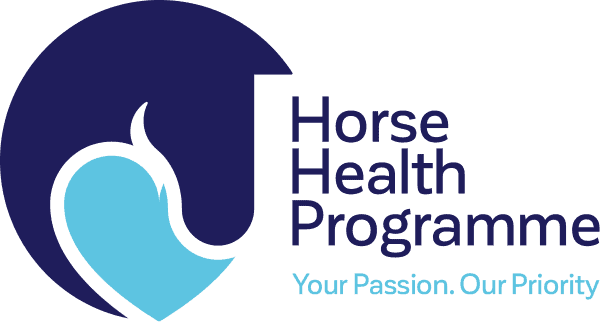Vaccinations
Horses, ponies and donkeys are susceptible to a number of diseases, some of which we can vaccinate against.
What are vaccinations?
A vaccination is a way of producing an immune response against a specific disease. It primes the immune system so that an appropriate immune response can be stimulated if your horse comes in to contact with the disease. Initially a primary vaccination course will be required when vaccinating against a specific disease. This involves two or three vaccinations fairly close together, followed by regular booster vaccines at set time intervals depending on the disease you are vaccinating against.
Is vaccination compulsory?
Vaccinating your horse is not compulsory, however a horse’s potential suffering can be greatly reduced with a good vaccination schedule. With diseases such as tetanus, the vaccine is extremely protective, whilst tetanus in an unvaccinated horse may prove fatal. If you wish to enter your horse into any competitions or if it is entering a racing yard then vaccination against equine influenza (flu) is compulsory. If you are putting your horse into livery then some yard owners will also insist on vaccination before allowing your horse onto the premises.
What are the benefits of vaccinating my horse?
- Individual protection of your horse
- Herd Immunity: vaccination can provide protection for both the individual and others by reducing the spread of disease. This provides protection for the minority of horses which are unvaccinated or vaccinated incorrectly. For equine influenza, a vaccination rate of over 70% of horses is required to achieve herd immunity. Herd immunity does not apply to tetanus as, although it is infectious, it is not contagious so horses can only be protected through individual vaccination.
Following vaccinations how long before I can ride again?
It is advisable that for the first 24 – 48 hours following vaccinations of your horse or pony, exertion is minimised. This will reduce the risk of adverse reactions developing. After this time period, you can ride your horse as normal. If you vaccinate against influenza then you are not allowed to compete until seven days after the vaccine has been given.
What diseases should I vaccinate against?
Equine influenza virus
A highly contagious virus which causes respiratory disease. It is spread easily and directly from horse to horse as airborne virus particles in the environment e.g. when they cough. Whilst equine flu is now endemic within the horse population, the virus strains continually mutate and therefore epidemics or outbreaks of the disease can be seen. Vaccine companies regularly update the vaccine to protect your horse against the strains that are currently circulating in this country. It is recommended you vaccinate your horse against equine influenza. [link to existing blog about Equine Flu on HHP website]
Tetanus
Tetanus is caused by the bacterium Clostridium Tetanii which is an anaerobic organism (it does not need oxygen). It survives in the environment (soil and droppings) for long periods of time. Tetanus is not contagious, meaning it cannot be spread horse to horse.
Tetanus penetrates the body via wounds. Puncture wounds and foot penetrating wounds carry the highest risk, but tetanus could also be acquired by gastric ulcers if the horse eats droppings or highly contaminated soil.
Tetanus can be treated, but unfortunately in most cases the horse dies due to the delay in the diagnosis. Horses with an early diagnosis can be treated with large doses of tetanus antitoxin. Penicillin based antibiotics may also be given in suspected tetanus cases.
The prevention of tetanus is easy by keeping your horse’s tetanus vaccination up-to-date.
Equine Herpes Virus (EHV)
This is a common virus in the worldwide horse population. The most common strains to infect horses are EHV1 and EHV4. EHV4 is most commonly associated with respiratory disease whilst EHV1 is more commonly associated with neurological disease and abortion.
Once infected, the individual harbours the virus for the rest of their life & can potentially shed the disease to other horses without showing any clinical signs.
Symptoms can be very similar to equine influenza. They can include high temperature, snotty or runny nose, dry cough, lethargy, loss of appetite, swollen neck glands, and abortion in pregnant mares. Less commonly, horses can develop neurological symptoms such as appearing weak and wobbly on their hind legs often accompanied by urinary incontinence.
Vaccination has proven to reduce clinical signs and decrease viral shedding and is an important part of a comprehensive protection strategy.
Which horses should be routinely vaccinated for EHV?
- Horses less than 5 years old
- Any horses in contact with pregnant mares
- Horses at livery with frequent equine movement
- Performance horses that travel to compete
Rota Virus
Rota virus causes diarrhoea in young foals and vaccination of pregnant mares during late pregnancy causes increased antibodies to be produced in the mare’s colostrum (first milk). These antibodies provide increased protection to the foal providing it drinks the colostrum.
Rotavirus is a virus that damages the villi in the intestines making it difficult for the intestines to absorb nutrients from food, otherwise known as malabsorption. The damage to the intestinal lining makes the foal unable to digest lactose, a component of the mare’s milk. This causes diarrhoea that pulls water from the foal’s body. Left untreated the foal will become badly dehydrated, a situation that could lead to death. The virus is carried in the manure and if a horse comes in contact with the manure, the virus can easily be ingested.
It is recommended that broodmares (particularly those foaling away at stud) are vaccinated against Rota Virus. Injections are due at 8,9 and 10 months of pregnancy.
Equine Viral Arteritis (EVA)
Breeding stallions should be vaccinated for EVA.
In all cases, please discuss vaccinations with your vet. An annual flu and/or tetanus vaccination is included with the benefits provided by the Horse Health Programme.





